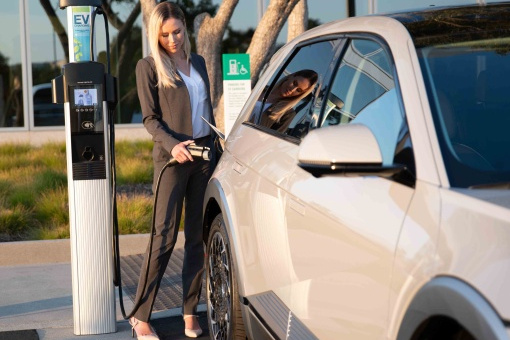First, there were the pioneers. Then the techies. Today, the electric vehicle seeks to seduce the masses. Many consumers weigh the pros and cons of the various options (which energy source to choose?) available to them. A real ordeal for a hesitant buyer.
Before reviewing the choices offered, let us recall the intention of the governmental authorities. These decreed the ban on buying (or leasing) a new vehicle powered by an internal combustion engine as of January 1, 2035. If Quebec has already announced “the beginning of the end of gasoline vehicles” , many motorists are wondering: what engine should we put under the hood today? Should we make the jump to electric immediately? Take a shortcut with a hybrid drive? Or, as long as there’s a drop, stick to gasoline?
An electric vehicle emits no CO2 in its path and virtually no particles. However, its production and that of its batteries mobilize much more energy and raw materials than a conventional model. It is also necessary to take into consideration the source used to produce the electricity. In Quebec, the environmental balance of an electric car is better than a thermal one after some 30,000 km traveled. In addition, several electric vehicles sold here are eligible for government grants of up to $12,000. If the purchase price is higher, the cost of use is lower. Finally, trips of several hundred kilometers no longer necessarily constitute a leap into the unknown, as long as you plan a little. On this subject, rest assured, applications are available to help you find charging stations on your route.
Opting for a 100% electric vehicle is a priori common sense for many motorists. However, there are just as many reasons to move away from it. Its range remains, in most cases, less than that of thermal models. And when it progresses (using a larger battery), it comes at the cost of longer downtime.
Therefore, in an ideal world, it would be better to have your “gas station” at home or near your workplace to refuel it.
To comply with increasingly stringent standards, several manufacturers are using micro-hybridization of gasoline engines. This technology allows for a negligible reduction in fuel consumption. On the other hand, a conventional hybrid like a Toyota Corolla Cross hybrid consumes on average nearly 2 L/100 km less than its gasoline equivalent. A gain that is more true on city streets than on expressways where the electric power unit is less stressed.
To gradually familiarize themselves with the electric shift (connection, autonomy, eco-driving), some consumers appreciate the rechargeable hybrid. This combines the advantages of the electric car and the gasoline car. The best of both worlds, for many motorists.
The internal combustion engine needs no introduction. It refuels easily and quickly. Its performance has improved considerably in recent years, but its dependence on oil puts it, at maturity, out of action. Not everyone is convinced.
A few weeks ago, Germany opposed a European Union law aimed at banning sales of petrol cars. It requires that internal combustion engines be authorized after this date, provided that they run on synthetic fuels. What will Quebec do?















